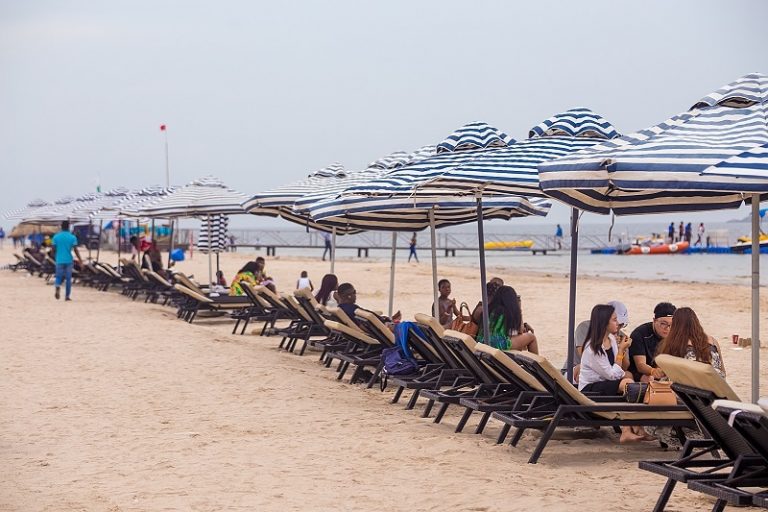
The management of Landmark Beach has revealed its intention to seek compensation from the Federal Government following the demolition of its properties, estimated at a staggering N42 billion.
The demolition, which occurred in April 2024, has not only impacted the physical infrastructure but also resulted in a significant loss of revenue for the company.
In a detailed statement, Landmark Group highlighted the extent of the damage and the financial repercussions. The demolished properties included vital buildings and infrastructure that supported the Landmark businesses. The group emphasized the severe economic impact, noting a loss of nearly half of its revenue due to the demolition.
Register for Tekedia Mini-MBA edition 19 (Feb 9 – May 2, 2026): big discounts for early bird.
Tekedia AI in Business Masterclass opens registrations.
Join Tekedia Capital Syndicate and co-invest in great global startups.
Register for Tekedia AI Lab: From Technical Design to Deployment (next edition begins Jan 24 2026).
“We are currently picking up the pieces following the demolition of almost N42 billion worth of supporting infrastructure and buildings, and the loss of nearly half our Company revenue.
“We are focused on working with the Government to receive adequate compensation required to jumpstart the rest of the once thriving Landmark part of the Landmark Ecosystem and a new family-centric beach in a different waterfront location,” the statement read.
The statement also underscored the broader socio-economic impact, noting the threat to the livelihoods of thousands of families and the disruption to small and micro businesses that were part of the Landmark Beach and its adjoining resorts.
“This will help to preserve the sustenance of the thousands of families whose livelihoods have been threatened by the demolition as well as recreate a platform for many of the small and micro businesses that were incubated on the Landmark Beach and adjoining beach resorts that were recently demolished,” the statement read in part.
Background of the Demolition
The demolition of Landmark Beach Resort, located in Oniru, Victoria Island, began on April 29, 2024. This action was part of the Federal Government’s efforts to clear the Right-of-Way for the Lagos-Calabar Coastal Highway. The demolition followed sand-filling operations on parts of the resort, which further complicated the situation.
Landmark Beach management disclosed that they had never been officially consulted about the highway’s alignment or engaged in discussions regarding the Environmental Impact Assessment (EIA) related to the project’s impact on their properties. This lack of communication and consultation has been a significant point of contention.
However, against the backdrop of the destruction of properties and businesses, the Federal Government, through the Minister of Works, Dave Umahi, announced the commencement of compensation payments to property owners affected by the Lagos-Calabar Coastal Highway project. At the second stakeholders’ meeting, Umahi disclosed that N2.75 billion had been disbursed as the first batch of compensation.
However, Landmark Beach was notably absent from this initial list of compensated entities.
Umahi addressed the property owners and stakeholders, stating, “The payment is only a flag-off, and more compensation is expected to be paid in the coming days.” Despite this assurance, Landmark Beach’s exclusion from the initial compensation round has raised concerns.
The EIA’s controversy
The EIA is a decision-making tool used to ensure that the potential negative consequences of a project are assessed, considered and taken into account before the project is approved.
Both stakeholders and Nigerians at large have pointed out that the government’s inability to present an EIA report contributed largely to the avoidable controversy rocking the coastal highway project.
“Dear @DaveUmahi,” Atedo Peterside wrote on X. “This is precisely why a proper Environmental Impact Assessment (EIA) should have been carried out + some sort of public hearing that would have given affected persons a voice.”
During the third stakeholders’ meeting, Umahi, who had earlier promised to provide the EIA report, invoked Section 15 (b) of the Freedom of Information Act, which allows withholding information involving third parties, to justify the non-disclosure of the EIA report.



